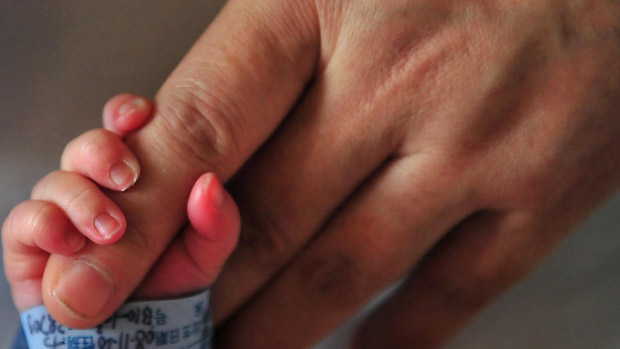Babies for sale: children openly sold online in China
Child-trafficking rings have become 'more sophisticated', using the internet to sell abducted babies in China

A free daily email with the biggest news stories of the day – and the best features from TheWeek.com
You are now subscribed
Your newsletter sign-up was successful
Babies, many of whom have been abducted from their families, are being openly sold online in China, a BBC investigation has revealed.
Sellers are becoming "more sophisticated" as they use websites and online forums to sell children to prospective buyers.
Baby boys can be sold for up to 100,000 rmb (£10,500), double the price of a girl, as male children are valued more highly in Chinese culture.
The Week
Escape your echo chamber. Get the facts behind the news, plus analysis from multiple perspectives.

Sign up for The Week's Free Newsletters
From our morning news briefing to a weekly Good News Newsletter, get the best of The Week delivered directly to your inbox.
From our morning news briefing to a weekly Good News Newsletter, get the best of The Week delivered directly to your inbox.
No official figures are released from Beijing, but the US State Department estimates that 20,000 children are abducted every year. The country's state media puts the number even higher, at 200,000, but Chinese authorities reject this figure.
"Once abducted, children are most often sold for adoption but some are forced to work as beggars for criminal gangs," the BBC's Martin Patience reports. "The vast majority of those abducted are simply lost forever."
The Chinese black market in children first came to the world's attention more than a decade ago, when police in Guangxi province discovered 28 babies in the back of a bus.
"They had been drugged to keep them quiet and then stuffed inside nylon bags, where one died from suffocation. The traffickers were caught and the leaders sentenced to death," writes Patience.
A free daily email with the biggest news stories of the day – and the best features from TheWeek.com
Last year, Chinese authorities uncovered four child-trafficking rings, leading to the arrest of more than 1,000 people who were caught using websites and instant messaging services to buy and sell babies.
Earlier this year, police busted a major child-trafficking network, rescuing 37 babies and a three-year-old girl in Shandong province. The children had been transported to prospective buyers in large suitcases and handbags, and many of them were ill and severely malnourished, CNN reports.
China's one-child policy has also forced some parents to sell their own children, to avoid receiving a severe fine. "There are too many babies born outside the family planning laws," said one doctor. "As long as the families make a deal and it's done right after birth, nobody needs to know."